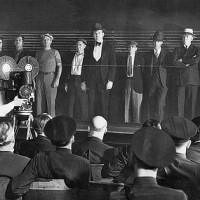 A writer friend trying his hand at fiction recently asked, “…since my protagonist is a woman, what traits might both men and women find appealing in her?”
A writer friend trying his hand at fiction recently asked, “…since my protagonist is a woman, what traits might both men and women find appealing in her?”My first response: Whether readers are male, female, gay, straight, transgender or some combo thereof, almost everyone is drawn to someone who passionately and actively yearns for something we consider meaningful.
The person on the page who truly catches our attention, emotion and heart is the character who shows desire, yearning, drive and who takes all steps possible to achieve their desire, no matter if the pursuit is misguided, and no matter the cost. (Remember “misguided” for later.)
That said, almost everyone roots for an underdog, or a Robin Hood, or someone who shows courage when facing overwhelming adversity, or a reluctant leader or hero, or that person who stands up for others in need.
Sometimes the positive character traits list reads like a singles ad: Kind to kids and pets, sense of humor, reasonably intelligent, and, if you’re “the one”, faithful!
I believe a story-worthy antagonist will also possess at least one heroic trait and may love animals, too. (Think Silence of the Lambs.) Never allow any character on the page who has no more depth than a paper cutout!
You don’t have to like a protagonist to want to read about them. A prickly main character might be more challenging to handle but there are plenty of them in the annals. These are the charismatic eccentrics. In film, Doc Martin’s irascible nature is tempered by the fact others care about him and can see through his schizotypal tendencies; Sherlock Holmes (in his many embodiments) has Watson to humanize him—and no matter how socially challenged and conflicted Sherlock might be, he’s brilliant, he shows courage, and he is passionate about truth, even when it comes to his own vices!
Remember I mentioned misguided a few paragraphs above? What a character yearns for desperately is probably not what they truly need. And they have attached intense meaning to the object of their desire. The “why” they want what they want. So they should inevitably encounter obstacle after obstacle and eventually face a dilemma—and a dilemma has no real solution.
All of that is a topic for another post, however it does mean that the characters we love—and the characters we love to hate—are filled with inner conflict. (Well, why should they be any different than the rest of us?)
My final thought today on creating memorable characters is this: I do not like questionnaires or quizzes or filling in medical histories or undergoing background checks. Too dry and methodical and boring. The same is true for me understanding my characters. These days, I’ve learned that I want to spend time with them when they are interacting with others. I eavesdrop when they are laughing, fighting, ranting, making love, meditating and medicating, shooting baskets, and racing down a perp. The interactions I overhear may not absolutely end up in my next book, but I get to see how two characters act with and react to each other. I see from both sides and I believe in parity. (BTW, as writers we should be voyeurs, but our protagonists cannot inherit our tendencies when it comes to passivity—they must jump from the shadows, metaphorical sword in hand!)

